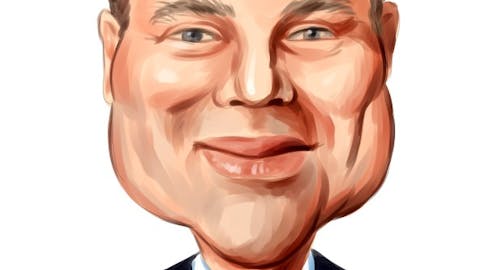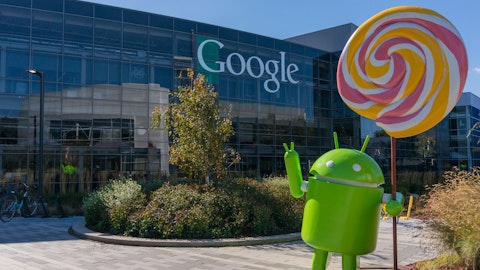The Fed is scheduled to deliver its much anticipated verdict on a possible rate hike this week. While the outcome is uncertain, with many economists arguing that inflation and employment figures are still not strong enough to raise interest rates, others argue that if the rate hike was delayed further it could lead to a steeper rise in the future. So how are retail investors supposed to react to this scenario? Goldman Sachs created a list of 50 stocks that investors can rely on in the event the Fed ends up juicing the interest rate. These companies have strong balance sheets, which means that they are less vulnerable to a rise in borrowing costs, low volatility, and stable sales and earnings growth. According to the bank, such stocks outpaced companies with weak balance sheets by an average of five percentage points following the rate rises in 1994, 1999, and 2004. The top ten companies on Goldman’s list belonged to either the consumer discretionary or technology sector, and keeping in mind the impressive 12.57% year-to-date returns of the technology sector, we decided to dig a little deeper into these stock picks, which included Google Inc (NASDAQ:GOOGL), Apple Inc. (NASDAQ:AAPL), Cognizant Technology Solutions Corp (NASDAQ:CTSH), Oracle Corporation (NYSE:ORCL), and Mastercard Inc (NYSE:MA).

Why do we pay attention to hedge fund sentiment? Most investors ignore hedge funds’ moves because as a group their average net returns trailed the market since 2008 by a large margin. Unfortunately, most investors don’t realize that hedge funds are hedged and they also charge an arm and a leg, so they are likely to underperform the market in a bull market. We ignore their short positions and by imitating hedge funds’ stock picks independently, we don’t have to pay them a dime. Our research have shown that hedge funds’ long stock picks generate strong risk adjusted returns. For instance the 15 most popular small-cap stocks outperformed the S&P 500 Index by an average of 95 basis points per month in our back-tests spanning the 1999-2012 period. We have been tracking the performance of these stocks in real-time since the end of August 2012. After all, things change and we need to verify that back-test results aren’t just a statistical fluke. We weren’t proven wrong. These 15 stocks managed to return 118% over the last 36 months and outperformed the S&P 500 Index by over 60 percentage points (see the details here).
5. Apple Inc. (NASDAQ:AAPL)
Investors with Long Positions (as of June 30): 144
Aggregate Value of Investors’ Holdings (as of June 30): $21.27 Billion
The $651.31 billion iPhone manufacturer received a quality score of 91 and occupied the 10th spot overall and the fifth spot among tech stocks. Recently, investors have been a little worried about the sluggishness of the Chinese economy impacting Apple Inc. (NASDAQ:AAPL)’s sales, since the country is the second-largest buyer of its products, just after the U.S and ahead of Europe. However, CEO Tim Cook (pictured above) was quick to dispel such worries in his email to Jim Cramer and the company has surprised its critics by revealing that the newly launched iPhone 6S and 6S Plus are on their way to breaking the opening weekend sales records set by the iPhone 6 and 6 Plus last year, with strong China pre-orders helping in that regard. Famous activist investor Carl Icahn‘s Icahn Capital LP is the largest stockholder of Apple Inc. (NASDAQ:AAPL) within our database, holding some 52.76 million shares valued at $6.62 billion.
4. Oracle Corporation (NYSE:ORCL)
Investors with Long Positions (as of June 30): 58
Aggregate Value of Investors’ Holdings (as of June 30): $7.79 Billion
With a quality score of 92, Oracle Corporation (NYSE:ORCL) ranked seventh on the list overall and fourth among tech stocks. Paul Singer would disagree with this particular candidate, since his fund Elliott Management has a significant put position on the $164.42 billion provider of enterprise software, and he has a more than 16% drop in Oracle Corporation (NYSE:ORCL)’s stock price on a year-to-date basis to back him up. In the three years between 2012 and 2015 the company’s revenues have increased by just 1% on average, while net income has declined by 0.4% over these three years. However, the low interest coverage ratio of 13.33 as compared to the industry’s average of 22.46 is definitely a big plus for the company if interest rates were to rise. Boykin Curry‘s Eagle Capital Management reduced its holding in Oracle Corporation (NYSE:ORCL) by 6% during the second quarter to 42.24 million shares.





